Senior Living Hall of Fame
Recognizing the lifetime achievements of influential leaders.

The Senior Living Hall of Fame was launched by the American Seniors Housing Association in 2018 to recognize, honor, and celebrate those industry leaders and visionaries whose significant contributions have helped shape the senior living profession.
A new class of inductees is announced each year at the ASHA annual meeting. The award was created not only to honor leaders in the field but also to serve as a record of inspiration to the next generation of leaders. Every honoree demonstrates an unwavering commitment to a community lifestyle that enhances choice, independence, dignity, and personalized service.
The Senior Living Hall of Fame Selection Committee is led by former ASHA Chair Larry Cohen, CEO of Trustwell Living. Committee members include Lois Bowers of McKnight’s Senior Living, Steve Monroe of The SeniorCare Investor, Tim Mullaney of Senior Housing News, and Matt Valley of Seniors Housing Business.
The best-in-class honorees are drawn from all aspects of the industry—operations, financing, ownership, investment, and research. What they share is a passion to advocate on behalf of the senior living profession, residents, and their families. The industry stands tall on the shoulders of our Hall of Fame honorees.
Notable recipients include Granger Cobb, who rose from executive director to run the largest senior living company in the nation, and Bill Colson, who built an international enterprise of 300 senior living communities. They are among the 23 industry giants that have been inducted into the Senior Living Hall of Fame.
Year Inducted: 2025
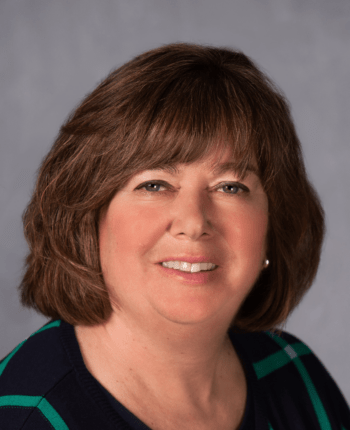
Beth Burnham Mace
Company: National Investment Center for Seniors Housing & CareYear Inducted: 2025
Location: Annapolis, MD

Annapolis, MD
Inducted 2025
HIGHLIGHTS:
- Industry’s first chief economist
- Helped cement senior housing as an acceptable, compelling, and desirable institutional investment asset type
Before senior housing was considered an institutional investment asset type, Beth Burnham Mace was there. Trained as an economist, Mace first recognized the potential of the industry during her 17 years at AEW Capital Management, one of the nation’s first institutional investors in senior housing.
Mace was hired by NIC in 2014 as chief economist and director of research and analytics. She was the industry’s first chief economist and one of the few women at the time with a leadership position in the sector.
In this role, she built a respected research team that remains in place today. She led NIC’s research initiative on the “Forgotten Middle”, which launched the industry’s focus on developing lower-cost care and housing options for middle-income older adults. She educated the media and industry followers about the nuances of the sector and she frequently presented her well-regarded NIC Blue Book to many boards and organizations.
A capstone of her career was the addition of senior housing into the NCREIF Property Index, a recognition that secures senior housing as an institutional investment asset class.
After retiring from NIC in 2023, Mace remains an active presence in the industry. She was recently named to the Board of Directors at Brookdale Senior Living.

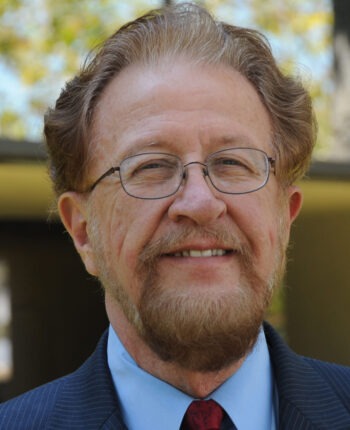
Dr. Laverne Joseph
Company: Retirement Housing FoundationYear Inducted: 2025
Location: Long Beach, CA

Long Beach, CA
Inducted 2025
HIGHLIGHTS:
- Led one of nation’s largest affordable housing organizations for 33 years
- Tripled the size of the nonprofit’s portfolio to 197 communities
- Relentless advocate for affordable housing
Inspired by his deep faith and belief in providence, Laverne R. Joseph played a transformational role in sustaining and expanding affordable housing nationwide. Each position he has held in his long and successful career gave him the sense of purpose that prepared him for the next step. As a young pastor at Peace Memorial Church in Chicago, he happened to become executive director of the church’s skilled nursing building. Recognizing a need, he expanded the facility, added a home health agency, and developed several affordable housing communities.
After leading the church for 21 years, Joseph joined Retirement Housing Foundation (RHF). Prior to that, he served for a year on the Board of Directors of the organization. During his tenure at RHF, a position he held until March 2021, the Long Beach, CA-based organization more than tripled in size, growing from 65 communities in 15 states to 197 communities in 29 states, Washington, DC, Puerto Rico and the U.S. Virgin Islands.
Today, RHF is one of the nation’s largest nonprofit sponsors and managers of housing and services for seniors, persons with disabilities and low-income families. Joseph attributes the organization’s success to effective teamwork and diligent attention to financial details, which help sustain its mission.
Joseph has been a member of ASHA since its founding and has served in leadership positions with LeadingAge and chaired LeadingAge California. He has been a relentless advocate for affordable housing in the face of an acute shortage. Joseph has testified numerous times before Congressional committees on the issue and has also served as a delegate-at-large to the White House Conference on Aging.

Year Inducted: 2024
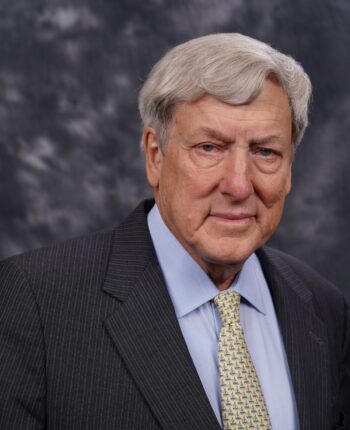
Robert Kramer
Company: National Investment Center for Seniors Housing & CareYear Inducted: 2024
Location: Annapolis, MD

Annapolis, MD
Inducted 2024
The mission of one of Bob Kramer’s most recent endeavors, the Nexus Insights think tank, neatly sums up his prolific, multi-faceted and highly influential role in senior living: Rethink aging from every angle.
His commitment to advancing innovation for older adults in housing, community and health care goes all the way back to 1991 when he co-founded and served through 2017 as CEO of the National Investment Center for Seniors Housing & Care (NIC). Today, he continues to serve NIC as board member and Strategic Advisor.
Under his leadership, NIC pioneered the development of data and analytics that the capital markets relied on as they turned their attention to the emerging senior living industry and powered its subsequent growth.
Kramer also was instrumental in compiling and naming The Forgotten Middle, a landmark study published by Health Affairs in 2019 that examined the health and socioeconomic status of middle-income adults who will be 75+ in 2029 and their ability to afford private pay seniors housing.
He founded Nexus Insights in 2020, where he works with a network of senior living leaders to identify and track trends in aging, as well as promote innovative models for services, housing and care for older adults.
He is a former county government official, Maryland state legislator and after graduating from Harvard University went on to Oxford University and earned a Master of Divinity degree from Westminster Theological Seminary.

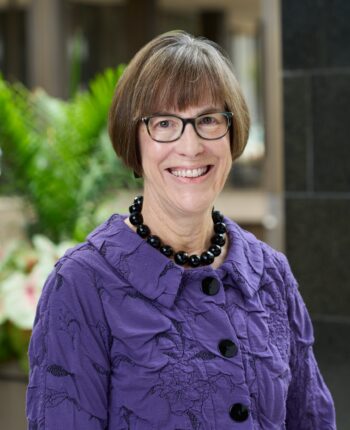

Baltimore, MD
Inducted 2024
Marilynn Duker and her partner Arnie Richman were ready in 1996 to capitalize on a new opportunity by branching out into senior living.
Richman led the creation of Brightview, while Duker continued to lead the multifamily side of the business until she became president of Brightview in 2007.
Built around the premise that a great place to work is a great place to live, Brightview Senior Living with Duker at the helm as CEO grew to 47 independent living, assisted living and dementia care communities in eight states along the East Coast.
She has been responsible for directing strategy, operations and long-term growth of the business.
Duker now serves as Co-Chair of Brightview Senior Living. Under her leadership, Brightview was named the #1 Best Place to Work in Aging Services by Fortune/Great Place to Work for four consecutive years. Twice, Brightview has landed on Fortune’s 100 Best Companies to Work For list, which spans all industries across the country, and both times it was the only senior living company honored.
She serves on the Mercy Health Systems Board of Trustees. Until October 2022, she also served on the National Investment Center for Seniors Housing (NIC) Operator Advisory Board. Duker was recognized as the Loyola University of Maryland Sellinger School Business Leader of the Year in 2019.
Prior to joining Brightview, she served as a Presidential Intern at the U.S. Department of Housing and Urban Development (HUD). Marilynn is a graduate of The College of Wooster and holds a Master’s Degree from the Massachusetts Institute of Technology.

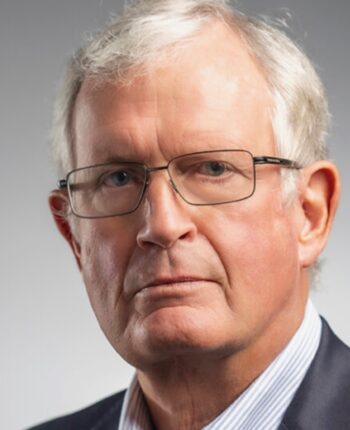

Toledo, OH
Inducted 2024
For George Chapman, there was one constant, core principle that he never wavered from throughout his 31 years investing and running companies in the seniors housing space, developing longstanding, mutually rewarding relationships built on loyalty, trust, and spirited friendship. When he joined Health Care REIT (now Welltower) in 1992, he promptly rose to become chairman and CEO, and assembled a $25+ billion seniors housing, skilled nursing and medical office portfolio in the U.S., Canada and United Kingdom. Following Welltower, he continued his passion for the industry as the founder of ReNew REIT specializing in seniors housing while partnering with best-in-class operators to help improve the quality of community-based living for seniors. Throughout his career, his focus on maintaining and growing mutually beneficial relationships was his driving force.
As a result of his leadership, tenacity, and commitment to relationship investing, Health Care REIT saw its market capitalization during his tenure jump from $394 million to $15.5 billion and its enterprise value climb from $633 million to $25.9 billion.
After Congress passed the RIDEA Act in 2007 that gave REITs the ability to share in the net operating income generated by their assets, Chapman quickly recognized how this would better align the interests of owners and operators. Health Care REIT was the first to close a RIDEA transaction.
The same principles were applied as he diversified Health Care REIT into medical office. Yet again, mutually beneficial relationships prevailed, this time focused on property managers, developers and health systems, all working together, contributing to Health Care REIT’s significant growth.
Chapman, who passed away in 2023, was a prominent, lifelong patron of the Toledo, OH, community. He was a member of the Board of Trustees of the University of Toledo, the Toledo Museum of Art and the Toledo Symphony.
In addition, he was a longtime board member of the American Seniors Housing Association and served on the boards of the National Association of Real Estate Investment Trusts on two separate occasions; National Storage Affiliates (NYSE:NSA), a self-storage REIT; and OnShift, a private equity-backed company focused on human resource solutions for post-acute and seniors housing.

Year Inducted: 2023
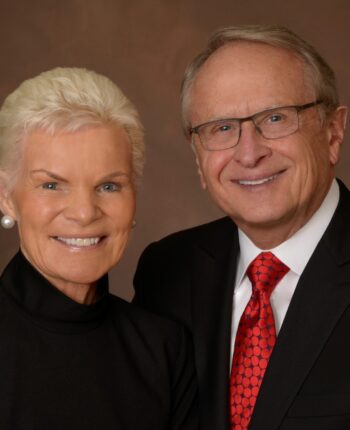

Bellevue, WA
Inducted 2023
For well over 40 years, going all the way back to 1976, Chuck and Karen Lytle have been innovators at the forefront of senior living’s ascent as they built, acquired and managed independent and assisted living communities across the western United States.
At its height, the Lytles oversaw a portfolio of 33 properties with 4,838 apartments. Today, their family-owned company based in Bellevue, WA, controls 19 communities in Arizona, California, Idaho, Missouri, New Mexico, Oregon and Washington totaling 3,000 units with an average size of 157 units.
Chuck, who had a hand in managing, acquiring and developing more than $1.5 billion in health care and retirement community properties throughout his career, in 1976 founded both Lytle Enterprises to oversee real estate development for senior living, along with Leisure Care to manage the sites.
Karen left banking and in 1981 joined Lytle Enterprise to oversee operations. She was subsequently named president and COO, and was promoted to chairman in 1998.
The Lytles’ daughter, Jill Ashton, joined her parents in 1992 and held positions in management, real estate and finance. In 2007, she was promoted to senior vice president at Lytle Enterprises, where her responsibilities include finance, investment, strategic portfolio management, and lender relations.
In 2003, the Lytles stepped back from day-to-day operations after selling Leisure Care to its CEO, Dan Madsen. Lytle Enterprises maintains ownership of its assets, while Leisure Care oversees management of the properties.
One of the greatest testaments to the Lytles’ legacy is the network of senior living leaders they helped develop over the years. These include the aforementioned Dan Madsen who now heads Leisure Care, Dwayne Clark with Aegis Living, Paul Dendy with Milestone Retirement Communities, and Tana Gall with Merrill Gardens.

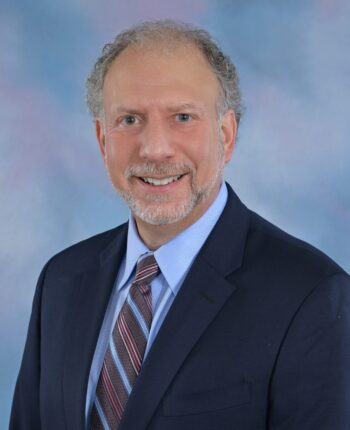

Madison, NJ
Inducted 2023
In 1998 when Noah Levy moved from his role leading Prudential’s senior living lending program and joined PGIM Real Estate, the commercial real estate arm of Prudential Financial, institutional investors typically allocated only two to four percent of their funds to commercial real estate. Investments in the nascent senior living sector were few and far between.
By the time he retired in 2018 when commercial real estate was now drawing around 10 percent of all institutional investments, Levy’s singular focus over 20 years on the senior living sector played a major role in raising its profile among investors and opening the way for far broader access to capital.
He developed and managed PGIM’s Senior Housing Partners investment funds, which throughout his tenure invested more than $2.6 billion in over 150 properties across the U.S. through a series of private equity funds.
In addition to driving home the message that longer life spans among the bourgeoning cohort of aging Baby Boomers is a prime investment opportunity for senior living, Levy backed his proposition by validating the sector’s ability to consistently sustain cashflow and deliver NOI growth. The yield hungry capital markets took notice. As important, institutional investors began to take comfort that sufficient liquidity existed to successfully round trip their senior living investments.
And while he was chairman of the American Seniors Housing Association (ASHA) in 2004 and 2005, one of Levy’s priorities was reinforcing the association’s outreach among federal policymakers, leading to some significant policy gains. He also continued the practice of solidifying ASHA’s financial base to meet potential future industry challenges.
Working with other members of ASHA’s Executive Committee, Levy expanded the Seniors Housing PAC’s influence by introducing a new venue for raising donations. The Chairman’s Circle, an annual retreat for those who contribute between $2,000 and $5,000 to the political action committee, now consistently draws widespread support.
A final focus for Levy during and after his term as Chairman was in the area of industry research and stewarding the growing cooperation between ASHA and NIC, especially toward improving the accuracy and reliability of construction data to meet the demands of institutional investors.
Outside of his professional career, Levy has focused his energy on promoting living options and programs for adults with special needs, serving on the Boards of two not-for-profits: Annandale Village and Certified Fitness for Special Needs.

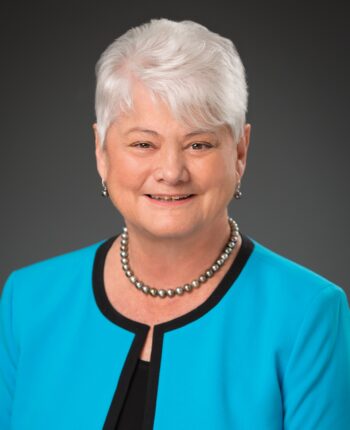

Portland, OR
Inducted 2023
With a freshly minted PhD in gerontology and the first-hand experience of watching her mother being forced at age 55 to reside in a nursing home following a stroke– there were no other options in 1980 — Keren Brown Wilson determined to find a better alternative.
She ultimately envisioned an accessible, private apartment with a kitchenette combined with a full range of support and health related services, and a service philosophy where resident choice and autonomy were paramount. Using state housing bonds and a special waiver to provide residential care, Wilson developed a 112-unit “living center” called Park Place that became the private pay prototype for what is now known as assisted living.
After Oregon became the first state in 1981 to receive Medicaid waivers for home- and community-based services that opened the way for an adult foster care program, she sought Medicaid funding for assisted living. Backed by an Oregon state demonstration project that found residents’ physical and cognitive functions improved and that costs significantly lower than those for nursing homes, her 2nd building Regency Park, received the 1st contract for Medicaid Home and Community Based Care clients in 1986.
At that point she refocused her efforts to reach a different market. Her sites typically had 30 to 40 units primarily in rural and suburban communities with populations ranging from 10,000 to 40,000 and relied on universal workers with multi-faceted responsibilities. Buildings were single story with modest construction costs per unit ranged from $55,000 to $70,000. Her target was the mid-level private market with capacity to serve Medicaid where it was available.
While senior living operators today eye the emerging Baby Boom demographic and deliberate how to serve the price-sensitive middle market, she was far ahead of her time in delivering a low-cost venue for assisted living. Rates averaged $1,600 a month, about 65 percent of the average nursing home rate. She also introduced tiered rates based on level of service based on individualized services plans.
In 1994, she formed Assisted Living Concepts which went public with an IPO, growing to more than 3,000 employees with 184 communities in 18 states. Wilson left Assisted Living Concepts in 2000. Assisted Living Concepts shareholders opted to sell the company in 2004, and it was renamed Enlivant in 2014 after it was purchased by private equity firm TPG.
After leaving Assisted Living Concepts, she first established the Jessie F. Richardson Foundation (JFRF), a private operating foundation in 2001, naming it after her mother. JFRF supports organizations serving indigent elders internationally. In 2018 she formed a public charity, AGE+ which focuses on serving older adults in Oregon. In response to a growing affordable housing crisis, AGE+ expanded its initiatives to include development of a manufactured housing model to create affordable (60% of AMI) fully accessible one-bedroom units of independent living in cottage clusters of similar size and locations with a mutual aid component called Circles of Care. In 2022 she received funding to build the 1st two projects in rural Oregon.

Year Inducted: 2022
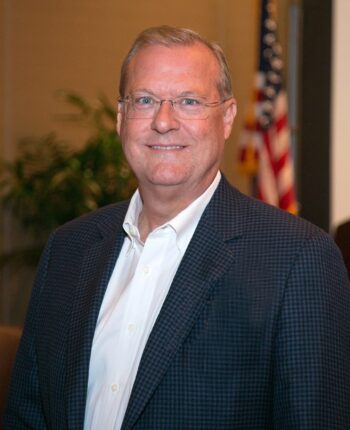

Grapevine, TX
Inducted 2022
From the very beginning as the 1990s got underway, when assisted living emerged as a novel alternative to institutionalized care by providing a more traditional, home-like setting for seniors in need of support services, and all the way through the next 30-some years, Steven Vick has been widely recognized across senior living as one of its most astute and successful forerunners.
He broke into assisted living in 1991 as the co-founder of Sterling House. The company went public in 1995 and rode the crest of the assisted living boom by developing and operating over 100 communities throughout the country.
Two years later, Sterling House merged with another publicly traded assisted living company, Alternative Living Services. This combination was the start of Alterra Healthcare Corp., which grew to nearly 500 locations in 28 states with Vick serving as president.
At one point during his tenure with Alterra, Vick during a nine-month period turned a monthly loss of $5 million to breakeven. In early 2002, he was tapped to lead the post-bankruptcy turnaround at Assisted Living Concepts. Overseeing 185 communities in 14 states, in just 120 days Vick turned a $200,000 monthly loss into positive cash flow.
After the Assisted Living Concepts shareholders opted to sell the company in 2004, he came up with a business plan to build and operate 10 assisted living/memory care communities across Texas over the course of five years and sell them for $20 million. Signature Senior Living was such a success that it ultimately sold for $25 million.
And in what became his grand finale, Vick co-founded Pegasus Senior Living in 2018, eventually building that group to 38 properties in 12 states before retiring in 2021.
Vick, who started his career as a CPA, also found the time to develop a software package for assisted living operators. Right Click was an integrated suite of programs that tracked marketing, financial and operational performance. He sold the company in 2014.

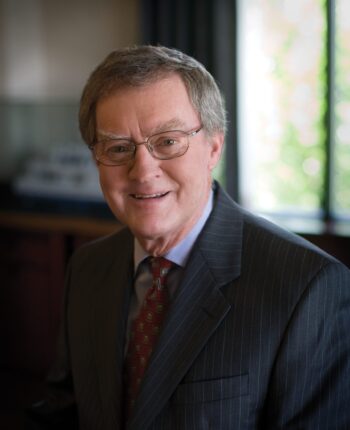

Baltimore, MD
Inducted 2022
As John Erickson saw it, bigger was better. Over the course of three decades beginning in the early 1980s, he built 22 CCRC campuses across the country, stretching from Boston to Denver, and from Detroit to Houston. Each one was the size of a small town with 1,500 to 2,000 residents.
There were innumerable advantages to his economies of scale, but the foremost was the ability to keep rental rates well within the reach of mid-America.
Each campus was built out in phases. When it was finished, there were well over 1,500 residents, around seven restaurants, approximately 2.5 million square feet of space connected by indoor walkways, a medical center, fitness center, pool and hot tub, convenience store, creative arts studio, game rooms and classrooms, and a library. A transportation fleet kept residents connected beyond the Erickson campuses.
The health care component was a distinctive feature that set the Erickson communities apart. There was a 65/35 split between approximately 400 assisted living units and SNF beds respectively. But employing a full-time staff of physicians at an on-campus clinic was unique. Scale and volume enabled Erickson to bring an entire range of medical services directly to residents. With a full complement of physicians, each doctor focused full attention on patients by scheduling only 16 appointments a day.
The roll-out of physician clinics led to the development of an electronic medical records system, a visionary move at the time. Backed by the data this delivered, Erickson Retirement Communities piloted a three-year program that was the predecessor to Medicare Advantage plans.
As 2010 got underway, Erickson Retirement Communities transitioned to new ownership. Redwood Capital Investments acquired the group, and it now operates as Erickson Senior Living.

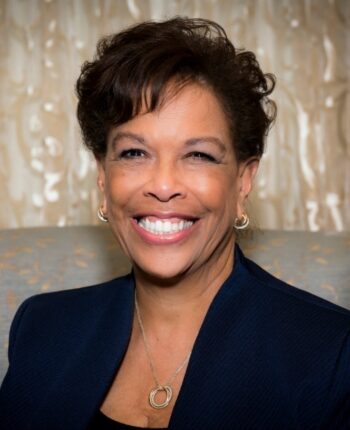

Mount Laurel, NJ
Inducted 2022
Brenda Bacon has never been one to shy away from serving the greater good. Throughout her career, time and time again she has answered the call to build a better future.
One of her most noteworthy achievements, of course, was co-founding Brandywine Living in 1996. As president and CEO, Bacon raised $65 million in private equity that opened the way to building an organization with 30 independent living, assisted living and memory care communities in seven states across the Eastern Seaboard.
During her term serving as chairman of Argentum, she was a forceful voice advocating on behalf of the senior living profession, residents and their families.
But she has done so much more. While growing up in Washington, DC, she was recognized by President Kennedy for her role in a junior leadership program. After graduating from Hampton University and earning an MBA from The Wharton School of the University of Pennsylvania, Bacon took an executive position at Pennsylvania Hospital.
Highlights of her extensive engagement in public service include serving as Chief of Management and Planning, a cabinet-level position under New Jersey Governor James J. Florio from 1989 to 1993. During President Clinton’s first term, Bacon was on loan to the Presidential Transition Team as co-chair for the transition of the Department of Health and Human Services.
In addition, New Jersey Governor Christie appointed Bacon to the Rowan University Board of Trustees, and she was honored with the Virtua Health Humanitarian of the Year award. She also was a founding member of the Boys and Girls Club of Camden, where she served as a Board member for several years and continues to advocate for the children of Camden, NJ.
And she has been elected to the board of directors for two companies on the New York Stock Exchange: FTI Consulting, a global business advisory firm; and Hilton Grand Vacations.

Year Inducted: 2021
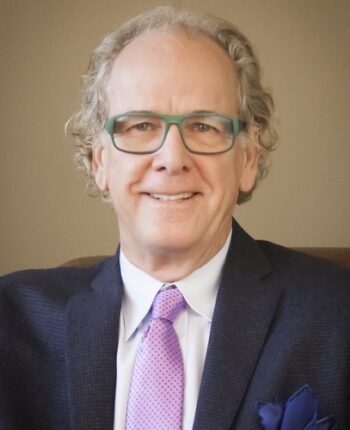

Tulsa, OK
Inducted 2021
Co-Founded Gemini Properties in 1976.
Shifted the company’s focus to senior living in 1989 with the founding of Senior Star.
Senior Star is so much more than senior living. It is about business excellence and bringing focus to community, philanthropy, volunteerism, and industry service while treating all these elements with the same passion and importance as business success. It’s about making a difference.
Twin brothers Robert D. and William F. Thomas are co-founders of their family-owned company, Senior Star, headquartered in Tulsa, Oklahoma.
Their enterprising efforts began with a lawn mowing business when they were boys. In high school and college, they focused more on their partnership on the football field—Bill played quarterback and Bob was a receiver. Then, at the age of 24, after graduating from the University of Tulsa, they established their initial business partnership, Gemini Properties, with the acquisition of an 8-unit rental property.
Their service-oriented ownership philosophy sprung from there. Senior Star has a 45-year foundation in an associate and resident centered culture. The Thomas brothers’ parents instilled in them the commitment to take ownership in the community, country, and the lives of people they touch. Attracting and cultivating strong leaders is essential to any company. For Bill and Bob it has also been intentional, allowing each of them the leeway and time to equally balance business with their passion for community and senior industry endeavors.
Robert Thomas is in his 25th year of board service to the Alzheimer’s Association. He is one of three founding members of the Alzheimer’s Impact Movement, a sister organization, where he remains the board treasurer.
William Thomas currently serves on the National Alzheimer’s Association Board. As ASHA’s 2006-2007 Chairperson, Bill introduced the Seniors Housing PAC to an annual, strategic campaign leading to a ten-fold increase in annual funding.
Locally, Bill and Bob are inductees in the Tulsa Historical Society Hall of Fame, the University of Tulsa’s Business Hall of Fame and are members of the University’s Distinguished Alumni. They have served in numerous leadership capacities (President, Campaign Chair or Executive Committee members) for Augsburg University, Cystic Fibrosis Foundation of Oklahoma, Domestic Violence Intervention Services, Family & Children’s Services, LIFE Senior Services, the Mental Health Association of Oklahoma, Philbrook Museum of Art, Tulsa Area United Way and the University of Tulsa—where they currently co-chair its long-range capital campaign.

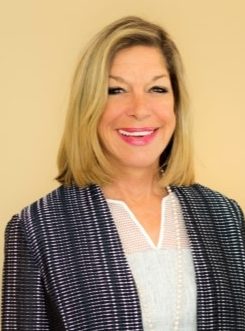

Houston, TX
Inducted 2021
Her Belmont Village Senior Living brand brought U.S.-style senior living to Mexico.
Under Will’s leadership, the company has won numerous design and development awards.
Patricia Will, Founder and CEO of Belmont Village Senior Living, has been an innovative force in the seniors housing sector ever since she launched her company in 1997, a time of rapid expansion in the industry.
Patricia built her business after earning an MBA at Harvard Business School. At the time she enrolled, she admittedly didn’t know a debit from a credit or how to read a financial statement. And she says she certainly hadn’t thought much about leadership. She later described the experience at Harvard as “life-changing.”
Her company set out to fill a void in the assisted living space by combining the best practices of gerontology, hospitality and architecture to create a high-end product, the cornerstone of which is programming designed to truly enrich residents’ lives.
That mission led to the development of Belmont Village West University, which opened in Houston in 1998. Today, Belmont has 31 operating communities nationally and in Mexico City. The company continues to develop new projects and has three communities slated to open in 2022 in California and Florida.
Patricia has built a strong brand that is highly respected. “Our goal has never been to be the biggest, just the best,” she says.
Belmont Village Senior Living brought U.S.-style senior living to Mexico. The company opened a high-rise project in Mexico City in 2017. At the time, there was virtually no senior living in a city of 21 million people. The 135-unit project is in the Santa Fe district and is part of a mixed-use development, connected by a sky bridge to ABC Medical Center, the top hospital in Mexico City.
Patricia has worked in real estate and health care for more than 25 years. In 1994, she co-founded Mischer Healthcare Services, which was the launch pad for Belmont Village. As a developer, she had a knack for conceiving what she wanted to build, picturing what it should ultimately be, and visualizing the construction.
She is Chairman Emeritus of the American Seniors Housing Association and is on the Board of Directors and the Public Policy Committee of the California Assisted Living Association (CALA), the Board of Directors for the Texas Assisted Living Association (TALA), and the Executive Advisory Board for Argentum. She also serves on the boards of the USC Davis School of Gerontology and the UCLA Center for Longevity.

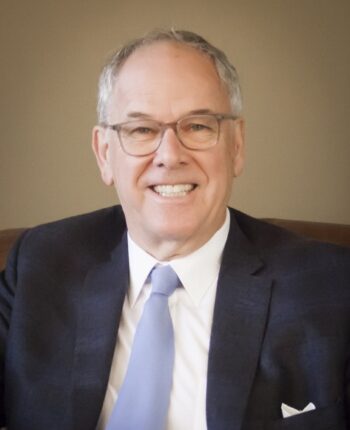

Tulsa, OK
Inducted 2021
Co-Founded Gemini Properties in 1976.
Shifted the company’s focus to senior living in 1989 with the founding of Senior Star.
Senior Star is so much more than senior living. It is about business excellence and bringing focus to community, philanthropy, volunteerism, and industry service while treating all these elements with the same passion and importance as business success. It’s about making a difference.
Twin brothers Robert D. and William F. Thomas are co-founders of their family-owned company, Senior Star, headquartered in Tulsa, Oklahoma.
Their enterprising efforts began with a lawn mowing business when they were boys. In high school and college, they focused more on their partnership on the football field—Bill played quarterback and Bob was a receiver. Then, at the age of 24, after graduating from the University of Tulsa, they established their initial business partnership, Gemini Properties, with the acquisition of an 8-unit rental property.
Their service-oriented ownership philosophy sprung from there. Senior Star has a 45-year foundation in an associate and resident centered culture. The Thomas brothers’ parents instilled in them the commitment to take ownership in the community, country, and the lives of people they touch. Attracting and cultivating strong leaders is essential to any company. For Bill and Bob it has also been intentional, allowing each of them the leeway and time to equally balance business with their passion for community and senior industry endeavors.
Robert Thomas is in his 25th year of board service to the Alzheimer’s Association. He is one of three founding members of the Alzheimer’s Impact Movement, a sister organization, where he remains the board treasurer.
William Thomas currently serves on the National Alzheimer’s Association Board. As ASHA’s 2006-2007 Chairperson, Bill introduced the Seniors Housing PAC to an annual, strategic campaign leading to a ten-fold increase in annual funding.
Locally, Bill and Bob are inductees in the Tulsa Historical Society Hall of Fame, the University of Tulsa’s Business Hall of Fame and are members of the University’s Distinguished Alumni. They have served in numerous leadership capacities (President, Campaign Chair or Executive Committee members) for Augsburg University, Cystic Fibrosis Foundation of Oklahoma, Domestic Violence Intervention Services, Family & Children’s Services, LIFE Senior Services, the Mental Health Association of Oklahoma, Philbrook Museum of Art, Tulsa Area United Way and the University of Tulsa—where they currently co-chair its long-range capital campaign.



Yakima, Washington
Inducted 2021
Campbell operated seniors housing communities for 62 years from 1954 to 2016.
He leaves a legacy of tremendous philanthropy and valued mentorship.
Carl Campbell, who passed in 2020, at 98, was a pioneer investor, property owner and mentor to many in the seniors housing industry.
From Yakima, Wash., his legacy includes a retirement and assisted-living company that once spanned more than 180 communities in 21 states, and many other business and philanthropic endeavors. Carl’s influence touched a number of senior care companies, including Frontier Management, Holiday Retirement, Integral Senior Living, and Life Care Centers of America.
Carl and his wife Betty arrived in Wenatchee, Wash., in 1953 to build Parkside Manor Nursing Home. It opened a year later and continued in operation until 2007.
In the 1960s, Carl and two partners formed CAMLU Retirement Centers. The company invested in skilled nursing facilities and eventually started building its own version of congregate care retirement communities.
By fall of 2016, at age 94, Carl had sold the last four properties in his portfolio to Vancouver, Wash.-based Prestige Care.
In the minds of many, the seniors housing industry can trace its roots back to the Northwest region of the country. Sue Farrow, founder of Integral Senior Living, named Carl as an incomparable mentor. She worked for CAMLU for 16 years.
Sue says so much of what she’s implemented came from Carl: He never believed in top-down management. He hired highly qualified people and gave them autonomy to implement their responsibilities. He always put service to the seniors in his communities first. He told Sue that if you give people the very best care and service, the bottom line will follow.
Carl had deep ties to many industry leaders. His connection to Greg Roderick, president & CEO at Frontier Management, spanned three generations. Greg’s grandparents were close friends with Carl and his wife Betty. Greg’s grandfather operated several nursing homes owned by the Campbells. Then later, with the Campbell’s encouragement, Greg’s father, Ron, launched a nursing home business with Bill Colson. After Ron’s death, Greg worked for Bill and was later hired by the Campbells to manage 10 communities. “That was my start,” says Greg, whose portfolio at Frontier now includes 126 communities. “I owe a great deal of my success to their belief in me.”
So many in the profession were inspired by Carl. He celebrated employees’ successes and created an environment that allowed them to explore new roles outside of their specific disciplines. He included his key employees in ownership so they could share in the success of communities and the company, and always took the time to write personal notes to acknowledge a job well done.

Year Inducted: 2020
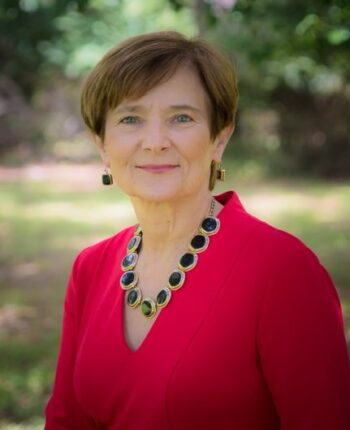

Oxford, MS
Inducted 2020
- Founded ProMatura Group in 1984, specializing in 55+ age-qualified research, planning and programming
- Author of numerous research studies examining customer attributes and preferences
Dr. Margaret Wylde started ProMatura Group in 1984 and since that time has conducted an extensive body of research that has significantly improved the collective understanding of the 55+ market.
The numerous and noteworthy research studies she has led include: Prospective Independent Living Customers: Key Findings from a Study of Prospects and Hold Outs (2013); Unlocking the Mystery Behind Very Satisfied Customers: Make Them Feel at Home (2014); Senior Living Technology Report (2017); and People, Place, Programming: Quality of Life in Assisted Living (2019).
In addition, Dr. Wylde has had a significant impact on community planning research that defines lifestyles, residences, amenities, services, payment plans, and pricing across North America, Europe and Australia.
ProMatura’s age-qualified housing expertise spans empty nester (55+) housing, as well as independent living, assisted living, care for those with Alzheimer’s disease or other forms of dementia, continuing care retirement communities, and nursing care.
ProMatura has collected data since 2003 for use by investors and developers of age-qualified, service-enriched housing and provides this to the National Investment Center for the Seniors Housing & Care Industry (NIC), which uses the data to track key market trends quarterly.

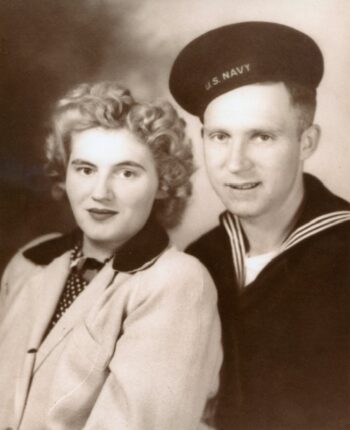

Olympia, WA
Inducted 2020
- Opened the Delaware Plaza in 1971, one of the first communities in the nation to provide “assisted living”
- Laid the groundwork for three family-owned and operated senior living organizations: Koelsch Communities, Jerry Erwin Associates and Weatherly Inns, totaling over 100 communities nation-wide
Emmett and Alice Koelsch risked it all on a shuttered nursing home in 1958. Guided by their family values and deeply held faith, they became innovators and leaders in the seniors housing industry.
The Koelsch family story is one of classic American success. Emmett Koelsch started his life on a farm in Great Bend, KS, and moved to Longview, WA at 17-years-old where he worked various jobs as a milkman, construction worker, and horse logger.
He met Alice at the St. Helen’s Inn, where she was waiting tables. They both started at Reynolds Metals, where Emmett was employed before and after his service during World War II. After 21 years and rising to a management position, Emmett left Reynolds Metals to pursue a new business: Seniors housing.
Emmett and Alice Koelsch started their family business in 1958 with the acquisition of a nursing home in Kelso, WA that had 52 beds, all of them empty. They moved themselves and their five children into the basement of the nursing home and got to work, buying or building every nursing home in Cowlitz County over the next 10 years.
In 1971, the couple had an idea: Provide care for those who could not live alone but did not require skilled nursing services. They built the Delaware Plaza in Longview, WA, providing meals, housekeeping and medication management for their residents, 10 years before the term “assisted living” was coined.
Emmett and Alice built a highly respected senior living business over the next 25 years. When they retired, all five of their children followed in their footsteps, starting their own seniors housing businesses with the foundation that Emmett and Alice laid. These businesses now operate over 100 communities in 21 states. The Koelsch children have never lost the values instilled by Emmett and Alice: Courtesy, integrity and treating everyone with dignity and respect.

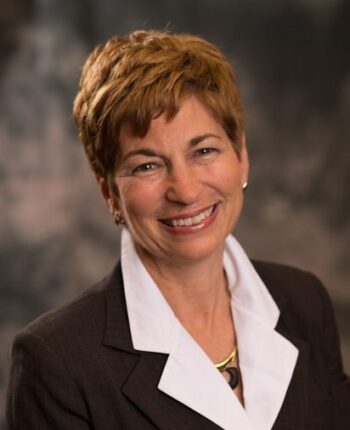

Bloomfield, NJ
Inducted 2020
- Founded senior living organization guided by the principles of corporate social entrepreneurship
- Pioneered integrated care model to participate in capitated and risk-based reimbursement
Lynne Katzmann founded Juniper Communities, which invests in, develops and operates senior living and long-term care communities at the age of thirty-two. Bringing with her no financial backing, a mere six year’s business experience and a PhD in economics, her mission was to improve the last years of life for seniors.
Katzmann believed that a woman could and should lead this business where the customers—staff, residents and family caregivers—were predominantly women. Her goal was to make Juniper profitable for investors; and as a founder of the then nascent corporate social entrepreneurship movement, she would adhere to the double bottom line: doing well by doing good.
Today, 31 years later, CEO Katzmann continues to actively lead Juniper, now with 22 properties in three states. Juniper is ranked #12 by Crain’s New York on its annual Top 50 ranking of woman-owned companies for the New York tri-state area.
Juniper’s investors have enjoyed double digit annual returns while her residents, their families and Juniper Associates give the company high marks on annual customer satisfaction studies. Health-related metrics, such as low hospital readmissions, support Juniper achievements with hard data indicators.
Juniper has developed and now shared a pioneering model of integrated care that will better position Juniper and other senior living operators to participate in capitated and risk-based reimbursement. Called Connect4Life, the program integrates with other services using a “high-tech/high-touch” communications protocol that transfers information through an electronic health record (EHR) and coordinates care through a human navigator.
Lynne is now launching an operator-sponsored Medicare Advantage I-SNP, collaborating with Christian Living Communities, Englewood, CO, and Ohio Living, Columbus, OH. Under The Perennial Consortium banner, the group plans to go live with the network in 2021 and to expand via partnerships with additional operator stakeholders.

Year Inducted: 2019
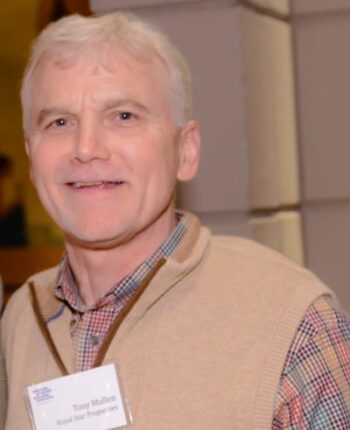
Anthony Mullen
Company: National Investment Center for Seniors Housing & Care (NIC)Year Inducted: 2019
Location: Annapolis, MD

Annapolis, MD
Inducted 2019
•Co-founded NIC and pioneered NIC MAP Data Service
•Led annual Advanced Sales and Marketing Summit
Tony Mullen’s legacy in senior living stretches far and wide.
He was a multi-faceted talent with a supreme grasp of data and analytics who poignantly and persuasively enumerated during the formative years of the industry why its investment returns were equal to and often superior to those of the traditional commercial property types.
He had a deep, intricate understanding of the unique fundamentals, strategies and tactics that are absolutely essential to successfully marketing and selling the merits of a senior living community. By applying his insights, operators across the country saw their market penetration rates surge.
And knowing that the future of senior living is inextricably tied to preparing tomorrow’s leaders for the multi-disciplinary demands of the business, he co-founded graduate level seniors housing and care programs at two universities.
Mullen, who at age 61 passed away in 2018, was in the vanguard of identifying, collecting and disseminating the myriad seniors housing metrics that financial institutions and operators rely on to benchmark the industry’s performance.
He was a co-founder in 1991 of the National Investment Center for Seniors Housing & Care (NIC) and served as its first research director before chairing NIC’s research committee and then becoming a senior fellow. He was instrumental in creating the NIC MAP Data Service, which tracks senior living metrics in the largest metropolitan areas across the country.
The State of Seniors Housing, the annual compendium founded by the American Seniors Housing Association that tracks the industry’s financial and operating performance, was another milestone where Mullen played a pivotal role in drilling deeper into communities’ data.
His mastery of senior living transcended analytics. In 1996, he founded the annual Advanced Sales and Marketing Summit, where for 21 years he assembled the foremost experts in senior living who shared their best practices in sales conversions. The symposium built a well-earned reputation for challenging the industry’s status quo and traditional sales methodologies, while advancing thought-provoking, customer-centric selling skills.
He leaves a lasting heritage that will be passed down to the future generations of senior living management, thanks to his role in co-founding the graduate-level seniors housing and care programs at Johns Hopkins University and the University of Maryland, Baltimore County.



McLean, VA
Inducted 2019
•Founded publicly traded assisted living leader
•Built portfolio of 450 communities in four countries
It all started in 1981 in an abandoned, former nursing home. This was where Paul and Terry Klaassen’s vision for what soon became known as assisted living got its start.
Their foresight and incomparable innovation triggered a national movement.
Investors took their cue from the Klaassens’ new addition to the senior living continuum, unleashing a flurry of assisted living development that gave seniors a novel approach to receiving care by rejecting institutionalization in favor of a more traditional, home-like setting with support services.
Sunrise Senior Living, with its signature Victorian-style communities, eventually grew under Klaassen’s leadership to more than 450 communities in four countries with approximately 50,000 residents and 43,000 employees.
After starting in the suburbs of northern Virginia and opening three communities in three years, Klaassen set his sights on becoming a growth company and achieving scale. This was when the Sunrise Victorian prototype was developed.
His criteria: “It had to be built on three acres anywhere in the country. It had to be reproducible. It had to have timeless appeal.”
Additional funding for his expansion plans came after private equity in the early 1990s secured a 25 percent interest in the company. Development jumped from two properties a year to 10 annually.
Sunrise went public in 1996 and the development pace accelerated to 20 a year. When Klaassen stepped down as CEO in 2008, 30 properties were under construction.
The inspiration behind Klaassen’s assisted living archetype came largely from his childhood experiences in the Netherlands, where elder care communities were called “verzorgingstehuizen”.
He watched his grandparents flourish in one of these communities as they aged. They enjoyed the independence and dignity of doing all the things they had always done – shopping, cooking and personal hobbies – but had access to assistance when they needed it.

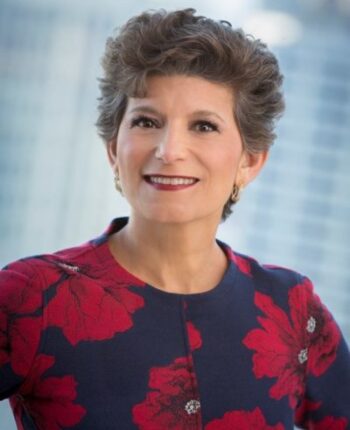

Chicago, IL
Inducted 2019
• CEO of a leading S&P 500 company
• Real Estate Investment Trust (REIT) owns approximately 1,200 seniors housing, health care and university-based research and innovation properties
The trajectory of Debra A. Cafaro’s career is extraordinary. She has excelled by virtually any measure, with her ascent culminating in leading an S&P 500 company with a market capitalization reaching $26 billion at its peak.
Seniors housing’s dynamic growth and emergence as a highly valued investment during her 19-year tenure as Chief Executive Officer of Ventas, Inc. are due in no small part to Cafaro’s vision and leadership. She saw early on that this burgeoning business was ripe for consolidation with the irrefutable, impending swing in demographics promising to power it forward. Investors took notice.
Under her guidance, Ventas has amassed a diversified portfolio of approximately 1,200 senior living, university-based research and innovation, and health care properties spanning North America and the United Kingdom. The upside for Wall Street: a compound annual total shareholder return of 23 percent since January 2000.
When Cafaro joined Ventas in 1999 after graduating with honors from Notre Dame, receiving her law degree cum laude from the University of Chicago and practicing real estate, finance and corporate law, the REIT had a market capitalization of only $200 million. Its principal tenant was Vencor, which operated primarily skilled nursing homes and long-term acute care hospitals.
Under intense financial pressure Vencor eventually declared bankruptcy and reorganized later as Kindred Healthcare. But Cafaro deftly led Ventas through the aftermath of its tenant’s troubles and pushed ahead to diversify its holdings. She took on the additional role of Chairman of the Board in 2003.
Ventas has made more than $30 billion in strategic investments since 2004. Today, it owns 727 seniors housing communities, just over half of its portfolio’s net operating income (NOI), in addition to medical office buildings, university-based research and innovation centers, post-acute care facilities and health systems.
Throughout her tenure at Ventas, Cafaro has drawn widespread recognition and praise for delivering consistent growth and exercising prescient foresight.
She was twice named one of the World’s 100 Most Powerful Women by Forbes Magazine; a Top 50 Best-Performing CEOs in the World by Harvard Business Review every year since 2014; one of the 100 Most Influential People in Healthcare five times by Modern Healthcare; and highlighted in The 70 Elite real estate executives who shaped the industry for the past 70 years by Real Estate Forum.
Additionally, she was named as one of the Bankable 21 CEOs in the book Get Rich Carefully by CNBC Mad Money host Jim Cramer and as one of nine Game-Changers in commercial real estate since 2000 by GlobeSt.com. Cafaro also was honored with the Industry Leadership Award by the National Association of Real Estate Investment Trusts (NAREIT).
She was named Chair of The Real Estate Roundtable in 2018, a public policy organization that brings together leaders of the nation’s top real estate ownership, development, lending and management firms to address key national policy issues relating to real estate. She is a member of the Business Council; serves on the executive committee of The Economic Club of Chicago and the Boards of The PNC Financial Services Group, Inc. (NYSE: PNC), the University of Chicago, Chicago Infrastructure Trust, Executives’ Club of Chicago, and World Business Chicago.
Cafaro grew up in Pittsburgh, where she was an avid fan of the city’s professional sports. In 2016, she became an owner of the NHL Pittsburgh Penguins and a member of its Management Committee, just in time to celebrate the team’s back-to-back Stanley Cup championships in 2016 and 2017.

Year Inducted: 2018
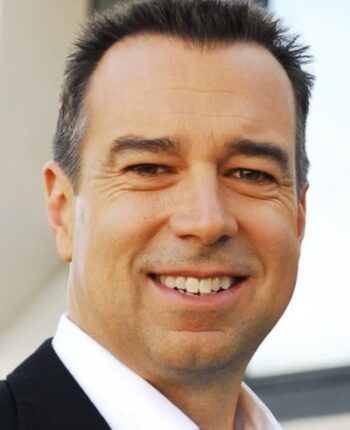

Seattle, WA
Inducted 2018
Granger Cobb during a 32-year span rose from executive director of an assisted living community to CEO of Emeritus Senior Living, the largest assisted living company in the nation, before spearheading a $2.8 billion merger with Brookdale Senior Living.
Combining the two publicly traded operators unified over 1,161 communities with approximately 112,700 units in 46 states.
When Cobb passed away at the age of 55 in 2015, he was a member of Brookdale’s board of directors. A resident of Seattle, he was commemorated with the founding of The Granger Cobb Institute for Senior Living at Washington State University.
He began his senior living career shortly after graduating from the University of California, Los Angeles and five years later in 1989 founded with his wife, Tina, Cobbco, Inc., a California-based assisted living company. After Cobbco was acquired in 1998 by Summerville Senior Living, he served from 2000 to 2007 as the combined company’s president, CEO and director.
Seattle-based Emeritus Senior Living merged with Summerville in 2007. During Cobb’s tenure as president and CEO of Emeritus prior to joining Brookdale in 2014, Emeritus grew to more than 500 communities in 45 states with over 31,000 employees serving almost 54,000 residents.

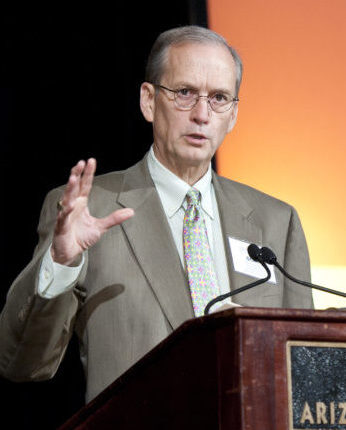

Des Moines, IA
Inducted 2018
Life Care Services, an LCS Company in Des Moines, IA, has long been at the forefront of virtually every facet of senior living. Best known for its extensive involvement in continuing care retirement communities (also referred to as life plan communities), Life Care Services has partnered with over 140 communities serving more than 35,000 seniors.
In addition to developing, operating and providing management services for senior living communities, Life Care Services subsidiaries oversee sales and marketing management, private equity real estate investment, home health care, group purchasing, and ancillary services.
For nearly 30 years, Stan Thurston was a driving force behind the organization’s growth and diversification. He led the development division and oversaw the operations management division prior to becoming Life Care Services’ president and CEO in 1995. He retired in 2006.
One of his most noteworthy innovations was creating the 90 percent Refundable Entrance Fee Contract for continuing care retirement communities, which was a major breakthrough in exponentially expanding the market for potential residents. This also gave communities greater control over their capital structures, while residents benefited from more affordable monthly service fees. And he was instrumental in guiding legislation that changed the tax code to protect continuing care retirement community residents by permanently eliminating entrance fee taxation.
Continuing care retirement communities for many years were traditionally the province of not-for-profit sponsors, who relied on tax-exempt bonds to fund their development. Thurston, however, saw an opportunity to bring for-profit participants to the table. By collaborating with various legal and regulatory groups, he came up with a business model that mitigated risk and provided a going return for the eventual owner of a continuing care retirement community.
Thanks to Thurston’s vision and foresight, consumers now have far more choices when they look for a new home at a continuing care retirement community.

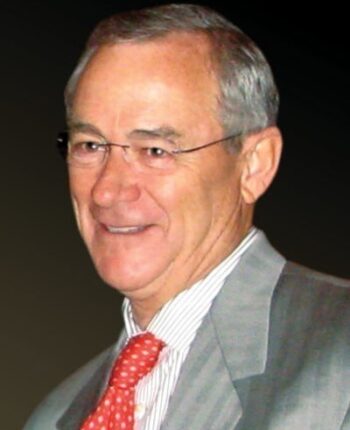

Nashville, TN
Inducted 2018
Building a fledgling, niche business into a dominant corporate force is an incredible feat. Bill Sheriff did it twice.
After Sheriff took the reins of the family truck stop business at age 22 and then decisively expanded it, nine years later it was sold to the Ryder System’s new national network of truck stops. Sheriff stayed and under his leadership from 1975 to 1984, the Ryder division grew to become the largest chain of corporate-owned-and-operated truck stops in the country. Sohio acquired it in 1984.
He quickly made the transition to CEO of American Retirement Corporation (ARC), a nascent seniors housing developer and operator in Nashville backed by the founders of Hospital Corporation of America. The similarities between truck stops and senior living communities may not have been obvious, but were nonetheless pertinent: A combination of food, lodging and services; assorted profit centers; round-the-clock operations; and a multi-state network of properties.
Specializing in continuing care retirement communities (also known as life plan communities), ARC went public in 1997. Nine years later, Brookdale Senior Living acquired ARC. With Sheriff moving over as CEO following the transaction, Brookdale became the nation’s largest operator of senior living communities. Throughout his tenure, Sheriff stressed the importance of an integrated continuum of services at Brookdale that included skilled nursing, home health care, rehab therapies, and hospice.
When he retired in 2012 after 28 years in the senior living business, Sheriff had assembled 647 communities in 35 states, with Brookdale operating independent living, assisted living, and dementia-care communities, as well as continuing care retirement centers.

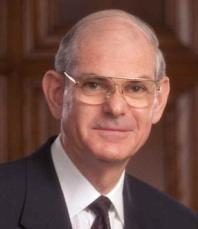

Fort Worth, TX
Inducted 2018
Jim Moore over the course of 50-plus years may very well have been the single most influential individual engaged in virtually every facet of the seniors housing business.
His Fort Worth, TX-based Moore Diversified Services with its market feasibility studies, detailed financial pro forma analysis, strategic planning, operations analysis, and investment advisory services has conducted over 4,500 consulting engagements in more than 1,200 markets across the entire U.S. In addition, he has overseen numerous international engagements in China, Hong Kong, Japan, Australia, Thailand, Canada, Europe, Central America and Mexico.
With market intelligence from more than 800 consumer and business focus groups and firsthand experience residing in over 130 seniors housing communities, Moore amassed an encyclopedic command of the intricacies and variables tied to successfully developing and operating seniors housing.
He has been a mainstay on both the for-profit and not-for-profit sides of the seniors housing profession while serving national and regional organizations.
Moore is past president of a major senior living trade association, serves as an independent director or an advisory board member of five seniors housing and health care organizations, and is chairman emeritus of the board of directors of Capital Senior Living Corp., a major public senior living company based in Dallas with a portfolio of over 130 properties that is traded on the New York Stock Exchange.

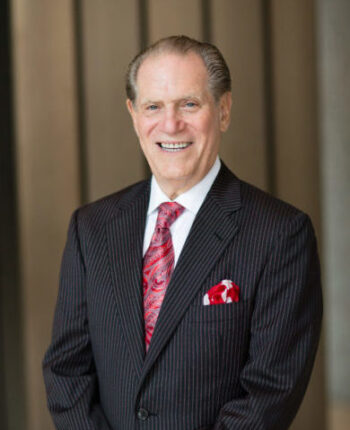

Chicago, IL
Inducted 2018
Vibrant, service-enriched communities emphasizing independence, choice and gracious hospitality have always been the hallmark of Senior Lifestyle since it was founded by Bill Kaplan in 1985.
Inspired by his prescience and ingenuity, Chicago-based Senior Lifestyle set itself apart from the competition by creating a broad strata of product lines over the years to serve the entire market, reaching across the high end to the affordable side.
Senior Lifestyle communities are located in 22 states. Many provide a continuum of care with myriad options for accessing support services.
One of Kaplan’s most noteworthy achievements was working with the Chicago Mayor’s Office to develop Senior Suites, an affordable housing brand that provides income-qualified residents with quality apartment homes in neighborhoods throughout greater Chicago. Unlike traditional affordable housing, Senior Suites includes daily resident programming, weekly local transportation, à la carte dining options, and a daily check-in service.
Senior Suites serves over 2,000 seniors in 24 locations. Each property is financed with a combination of investments from the private sector through the sale of low-income tax credits coupled with assistance from local, state and federal resources.
Prior to founding Senior Lifestyle and serving as its chairman, Kaplan was a managing partner of Romanek-Golub and Company, where he was involved in all real estate transactions and was responsible for the residential marketing and management divisions. Before joining Romanek-Golub in 1971, Bill was vice president/general manager of Greyhound Food Management, Inc., where he was responsible for its midwest hospitality and food service program.

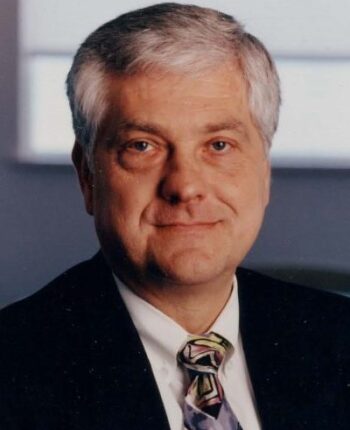

Salem, OR
Inducted 2018
The breadth of Bill Colson’s legacy in seniors housing is a testament to his guile, foresight and perseverance. Quietly yet confidently, he shrewdly built an international enterprise over the course of 36 years with more than 300 independent living communities that ultimately sold for $6.5 billion.
An unabashed contrarian who zeroed in on the middle market and relentlessly stressed affordability, he founded what became Holiday Retirement Corp. in 1971. Based in Salem, OR, his group developed, constructed, acquired and managed a portfolio that eventually spanned the U.S., Canada, France and the United Kingdom.
Colson, who passed away in 2007, is widely recognized across the seniors housing profession as a visionary who saw the potential in building independent living apartments that featured food service, transportation and social activities long before others began to take notice when development surged in the 1990s.
A typical Holiday community during the company’s heyday was built in a second or third tier market at a cost of approximately $7 million. With about 110 units, it opened at 50 percent occupancy and quickly reached pro forma stabilization within a year.
He is held in the highest regard and with the utmost respect throughout the seniors housing business as one of its legendary founders. Ask any of his colleagues and peers about Bill Colson, and the admiration is unequivocal: Irrepressible enthusiasm, inspirational, witty, genuine, provocative and always forthright.
